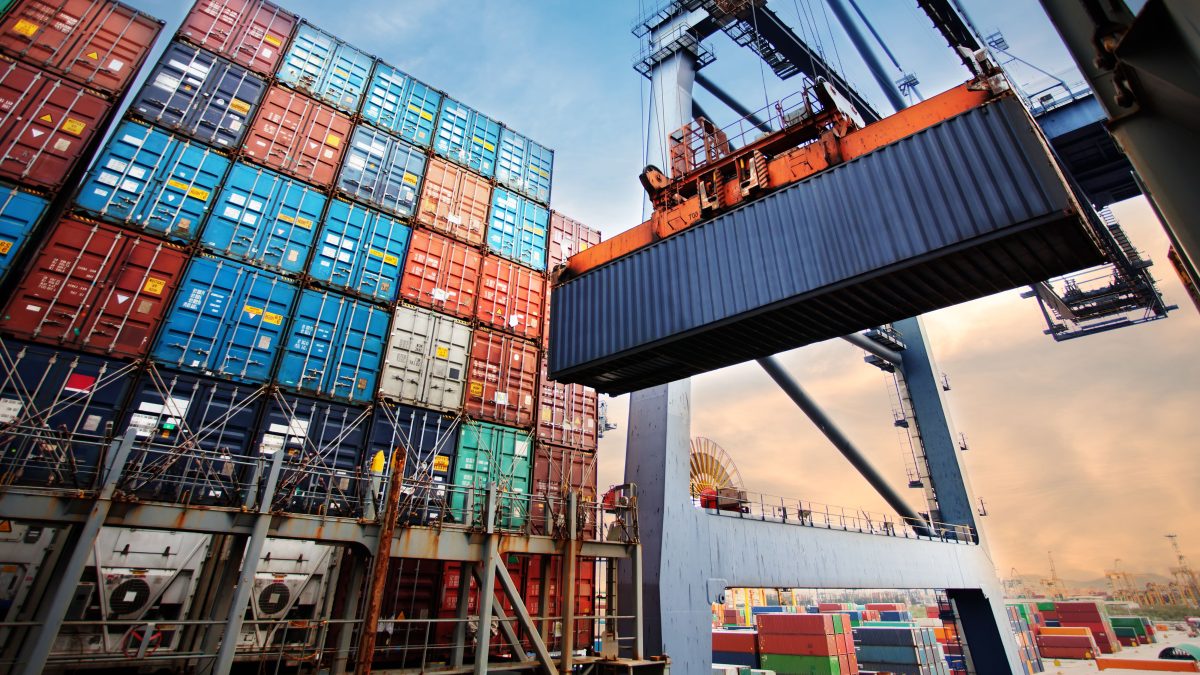
NOAA Fisheries Proposes Changes to SIMP Rule, Requests Public Comment
March 14, 2023
2023 Retail Sales Expected Growth
April 6, 2023Avoiding Demurrage and Detention Charges
Most shippers using containers to import goods and merchandise have been surprised with unexpected, unnecessary, and unwanted detention or demurrage fees. Such fees are not always avoidable; however, steps exist that companies and individuals can take to best prevent them.
Detention vs. Demurrage: What is the Difference?
Both detention and demurrage fees are issued when a cargo container is not where it is supposed to be according to the carrier or port. Detention and demurrage fees have some important distinctions.
What are Demurrage Fees?
When a container arrives at a port or terminal, it is allotted a specific amount of free time or a specific number of days it can remain before departing to its destination without a fee. Free time typically ranges from two to seven days; however, it can depend on the port and can fluctuate based on specific factors.
If the container remains after the free time expires, the port, terminal, steamship, and in the case of air shipments, the airline, will charge the shipper a demurrage or storage fee. These fees are imposed daily, meaning the more time spent detained in the container yard, the higher the total demurrage costs.
What are Detention Fees?
Once the container leaves the port, shippers are expected to return it within a specific amount of time. If the shipper does not return the empty container on time, they will incur an equipment detention fee, also known as a per diem fee.
Some Common Causes of Demurrage and Detention Fees
Carriers contend that while the fees are painful, such fees are not levied without reason. Detention and demurrage fees are designed to encourage the flow of goods and incentivize shippers to schedule and stick to the schedule.
Circumstances that typically cause or lead to these additional fees:
- Poor communication between the shipper and consignee. Moving goods around the globe requires significant coordination and communication between the sender and receiver. Detention and demurrage fees are a common consequence if both parties are not on the same thought process about cargo arrival and departure dates and times.
- Lack of Equipment. When not enough equipment is available, it can cause backlogs. An example is when carriers and ports faced a chassis shortage during the pandemic, and countless containers sat waiting to be picked up from ports surpassing their allotted free days.
- Labor Shortages or Labor Strikes. When port employees, truck drivers, or other transportation teams go on strike or face staffing shortages, moving containers and chassis in a timely manner becomes more difficult than usual
- Issues with Customs Clearance Documentation. Import and export shipments require extensive documentation to clear Customs. Not having the appropriate documentation in order when the
cargo arrives at the port can cause delays. - Bad Weather and Natural Disasters. Hurricanes, earthquakes, flooding, and other weather-related events can also cause backups at ports, terminals, and warehouses.
- Legal Driving Hours. By law, truck drivers are required to stop driving after they have met a certain driving limit. If a trucker’s legal driving hours do not align with their delivery schedule, it can cause them to be late returning empty containers to the port/terminal facility.
Avoiding Demurrage Fees
In situations such as labor shortages and natural disasters, avoiding demurrage and detention fees are not possible. However, shippers can take some steps to decrease demurrage and detention fees by doing the following.
Negotiate for Extra Free Days
If you foresee any issues that might prevent your carriers from picking up the container on time, you can make a request to extend the free time from the steamship carrier, terminal, or port carrier. While experts say only large-scale shippers that import/export hundreds or even thousands of containers a year will get additional free days, some smaller scale shippers have received a longer free period simply by asking.
Determine who will Pay the Fees in Advance
In most cases, demurrage fees incurred must be paid prior to cargo leaving the port. If you cannot pay the demurrage fees, they will only continue adding up until they are paid. Partnering with a freight forwarder or customs broker can prevent this issue from occurring, as the service from these parties may include paying the fees on your behalf and can then be included as part of your invoice. Plan beforehand, so everyone is clear on who will pay for the carrier/terminal fees prior to picking up the goods.
Ensure Your Customs Entry is Completed Timely
Customs brokers can file entries prior to the vessel/container arriving at the port of entry. However, it can be difficult to know when the container will be unloaded from the vessel as it is often in port for three days or longer unloading thousands of containers. Ensure the necessary paperwork, such as commercial invoices, packing lists, and other essential documents, are provided timely to your customs broker to secure a timely customs clearance on your behalf.
Avoiding Detention Fees
Similar to demurrage fees, shippers can plan to prevent unnecessary detention fees. The best way to avoid detention fees includes ongoing communication with your freight forwarder and trucker. Ensure all containers are unloaded quickly when delivered to the final destination and the empty containers are picked up and returned to the port within the allowable free time. If the empty containers cannot be returned timely due to congestion at the port, be sure to keep solid documentation to prove this in case the fees need to be disputed with the carrier. Detention fees are often billed to the freight forwarder or trucker after the fact, so be sure to monitor all containers until they are returned to the port to avoid detention fees.
What to Know:
Demurrage is the fee the merchant or cargo owner pays for the container’s storage within the terminal beyond the free time.
Detention is what the merchant or cargo owner pays for the use of the container outside of the terminal or dock, beyond the free time.
Storage Fees are levied on cargo when they are at inland terminals.
Definition of free time allowed depends on the small print of each contract to determine how much time is free. It is important to check this detail before embarking cargo on any vessel voyage.
The transportation and logistics industry can change quickly, and it is necessary to stay up-to-date and informed about various laws and port requirements to best avoid unnecessary fees.
Please contact your Western Overseas representative with any questions



